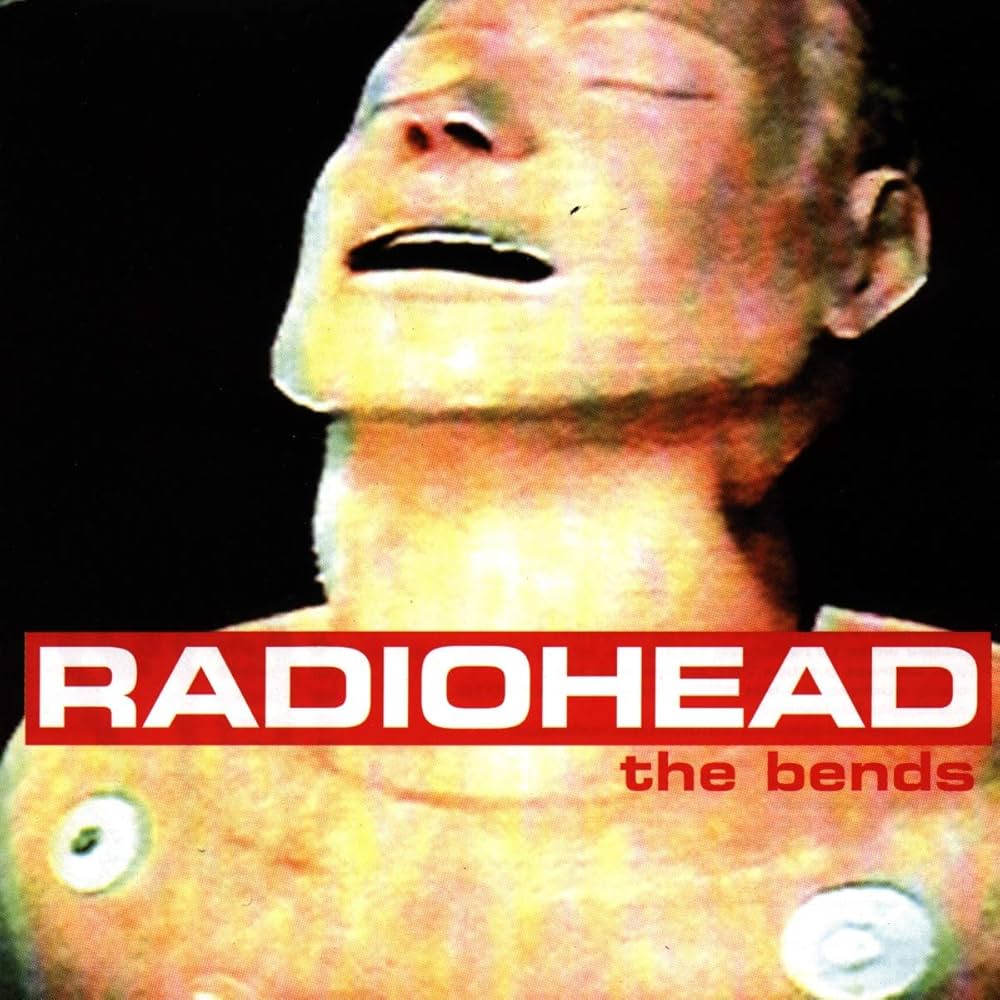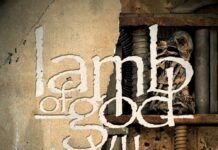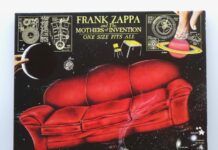While I have publicly agreed, on occasion, with the implicit message of the movie, The Matrix, that humanity peaked in the 1990s, especially when it comes to certain aspects of music, that decade did roll out some rather peculiar hits, too. I’m not sure what was put in the tap water in the early 1990s because there is nothing reasonable in the popularity of the single, “Creep,” released by RADIOHEAD in 1994 off their debut album “Pablo Honey.” Guitarist Jonny Greenwood hated the song so much that he had already tried to sabotage it during the recording sessions, hence the song’s iconic, in-your-face thrash riff in the chorus. Later, annoyed with the song’s popularity, RADIOHEAD released a single detailing their frustration with that song, almost as if it were a mechanical respirator keeping the band alive. The song was from their second studio album “The Bends,” which was the band’s first genuine masterpiece – birthed out of the anguish and collective hatred for that weird little hit. In addition, the record label kept pushing the band pretty hard to match the sales of that blockbuster hit, turning the initial sessions into “eight weeks of hell and torture” and “a total fucking meltdown for two fucking months,” as the band later described them in graphic detail. Released on March 13th, 1995, via Parlophone in the UK and on April 4th, in the United States, this sophomore effort cemented these Oxford nerds as a true musical force to be reckoned with. It was essentially “The Bends” that elevated the band from one-hit-wonder to one of the most established British bands of the era. While BLUR and OASIS were busy outmaneuvering each other by loudmouthing in the press, RADIOHEAD dropped a kick-ass album that would influence a generation of post-Britpop acts, such as COLDPLAY and MUSE. This album also marked the first to be recorded with Nigel Godrich who has been later dubbed “the sixth Radiohead member” for his contributions to the band’s unique sound. The debut had been mostly a portfolio piece for the band’s frontman, Thom Yorke, whereas “The Bends” saw far greater collaboration within the band. While the songs are guitar-driven rock numbers at heart, there is something spaced-out and art-rockish about them, something odd and yet appealing that would soon constitute the very essence of the band’s unique sonic fingerprint.
The album came out in the era of CDs, but there is a quaint duality about the song selection that oozes a somewhat vinyl-era approach. The first half of the selection is markedly slow-paced and ethereal, almost droning in melancholy. Driven by a drum loop lifted from another RADIOHEAD song, “Planet Telex” opens the album on a strange footing, what with all the studio gimmicks and Yorke singing drunk, slumped in a corner. It has been said that “High and Dry” was the song that birthed COLDPLAY, which might not be that far from the truth, given the sonic terrain of their debut “Parachutes.” On the same note, “Planet Telex” is a song that could have birthed MUTEMATH.
Next up, the title track gears up on a tad more chaotic vibe; I reckon that it must have been quite intentional since the lyrics touch on the topic of being lost and not knowing where to go next. Considering the circumstances at the time of the recording sessions, the lyrics were addressed more to the band members themselves than their fans.
This chaotic mood does not last very long, though, as “High and Dry” defaults back to the slow-burning melancholy mood. Had I heard this song a little earlier, my musical excursions might have taken on wilder tangents much earlier than they eventually did. The thing is – RADIOHEAD played a show at the Helsingin Juhlaviikot event in 1995, just a day or two before MASSIVE ATTACK, which I had bought tickets for. Then, a few weeks after the event, I found out about this song and my initial feeling was, “Shit! I shouldn’t have missed that show!” Well, yeah, I shouldn’t have – the setlist leaned heavily on this album classic and the band has not been to this neck of the woods too often ever since. I guess the lyrics are about the agonies of being famous, to which I cannot relate, but there is something strangely appealing about the song that just gets under your skin.
Continuing the “slow-burning anguish”-vibe, “Fake Plastic Trees” is a sublime take on consumerism’s impact on our human relationships, charged with lots of suppressed anger. This is one of those songs on the album that showcases Yorke‘s impressive falsetto vocals – inspired by the late Jeff Buckley. It’s almost as if the song is preparing the listener for the inevitable outburst that lurks just around the corner – which does come next in “Bones.” Okay, the song is not necessarily the nuclear meltdown that you would expect after such brooding songs but rather a quicker-pick-me-upper prompted by these slow-paced dirges.
The divide, where the vinyl side A would be flipped over, is the song, “(Nice Dream).” It ties the loose ends together into an amalgamation of all the droning sadness and hissing anger of the previous songs. It makes the transition from these dark waters to the Brit-rock formula of “Just” a little smoother. In this rocker, the band finally seems to have made peace with their past, playing on the strengths that made them famous in the first place without anyone in the band trying to sabotage it with the odd metal riffage.
Then, “My Iron Lung” is the very song that probably ignited the creative spark for this sophomore album altogether. The lyrics are all about the frustration toward that blasted hit from the debut. Well, like one online connoisseur of vintage indie music once wrote, it is pretty impressive what sheer hatred can do.
Fear leads to anger; anger leads to hatred, and hatred leads to suffering, just like the old movie quote said; “Bulletproof… I Wish I Was” is where the agony that has been hovering above the songs up to here begins to turn into depression and dread. So, it seems there is a kind of dramatic arc to the album. This album is not yet such a haunted landscape of alienation that “OK Computer” would be a few years later, but it sure is a chilling compendium of dark emotions.
The best tracks are so other-worldly good that the two songs that are merely good, and perhaps sorely misplaced in the selection – namely, “Black Star” and “Sulk” – feel almost like fillers. Listen to them in isolation and you’ll realize that they are quite good, but the competition on this album is really tough. I mean, anything placed right before the closer is doomed to pale in comparison. Inspired by a Ben Okri novel and R.E.M., “Street Spirit (Fade Out)” is like a dark foreboding of the mind-shattering RADIOHEAD album that would hit the world unawares in 1997. In fact, the song’s theme of escaping from an oppressive reality would resurface brilliantly in quite a few future endeavors by these Oxford gents.
A great album that I wish I had found much earlier.
Written by Jani Lehtinen
Tracklist
- Planet Telex
- The Bends
- High and Dry
- Fake Plastic Trees
- Bones
- (Nice Dream)
- Just
- My Iron Lung
- Bullet Proof… I Wish I Was
- Black Star
- Sulk
- Street Spirit (Fade Out)
Lineup
Thom Yorke – vocals, guitars, piano, string arrangements
Jonny Greenwood – guitars, organ, recorder, synths, piano, string arrangements
Ed O’Brien – guitars, backing vocals
Colin Greenwood – bass
Philip Selway – drums
additional musicians:
Caroline Lavelle – cello
John Matthis – viola, violin
Label
Parlophone
Links
https://www.radiohead.com
https://www.instagram.com/radiohead/?hl=fi
https://www.facebook.com/radiohead






